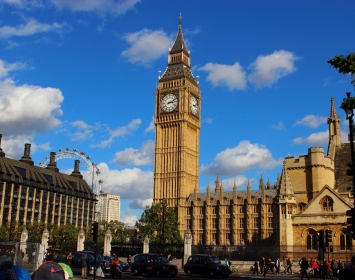Mariano Rajoy miniszterelnök szeretné felhozni az ország nyelvtudásának szintjét, ezért betiltaná a televízió műsorok szinkronizálását.
Spain considers ban on dubbing in bid to boost English language skills
A new proposal from the ruling Popular Party could see Spain say adios to the practice of dubbing foreign programmes on television as a way of improving the nation’s English proficiency.
Spaniards lag far behind their Scandinavian, German and Dutch cousins when it comes to English proficiency, but they could soon be shooting up the EU English league tables if one election proposal comes to fruition. The conservative Popular Party (PP) led by Spanish Prime Minister Mariano Rajoy want a part of all television programming in Spain to be emitted in the original version, getting rid of dubbing and broadcasting with subtitles instead. Spain’s Education Minister, Íñigo Méndez de Vigo, unveiled the plan as part of the PP’s electoral programme for education and culture in Burgos on Thursday. The plan also includes measures to allow all Spanish children to receive schooling in Spanish. In some regions of Spain, public schools teach the majority of classes in regional languages, such as Catalan or Basque.

Spanish Prime Minister Mariano Rajoy has famously struggled with English, which has sometimes hindered his ability to join in the banter on foreign visits. He had been working on his language skills, however, as a recent documentary revealed.
Spain’s long tradition of dubbing films instead of subtitling them stems, in part, from its political history. Under General Francisco Franco, all foreign – and even regional – languages were banned, which meant that international films shown in Spain were dubbed in Spanish rather than shown in their original languages with subtitles. Dubbing Hollywood films into Spanish also meant that Spanish censors could remove whole swathes of storyline; in the film Mogambo, Spanish censors made Grace Kelly and Donald Sinden siblings to avoid explaining her adultery (he is really her husband).
But the tide is changing. Many Spanish cinemas now show films in V.O.S (versión original subtitulada – subtitled original version) and as younger generations improve their English, they increasingly want to watch films in the original language rather than dubbed in Spanish.
Hollywood stars have also been known to not be the biggest fans of their foreign dubbers. “I heard my Spanish self for the first time and it is so high pitched and different from my own voice,” Jennifer Lawrence recently told US chat show host Conan O’Brien.
source: www.thelocal.es
Vocabulary
|
ban |
tiltás |
|
dubbing |
szinkronizálás |
|
in a bid to |
azért, hogy |
|
to boost |
fellendíteni |
|
proposal |
javaslat |
|
to improve |
fejleszteni |
|
to lag behind |
lemaradni |
|
to shoot up |
felszállni |
|
to come to fruition |
megvalósulni |
|
to emit |
leadni, sugározni |
|
to get rid of |
megszabadulni valamitől |
|
to broadcast |
sugározni |
|
subtitles |
feliratok |
|
to unveil a plan |
bemutatni egy tervet |
|
measures |
intézkedések |
|
to struggle with |
küzdeni valamivel |
|
to hinder |
hátráltatni |
|
banter |
tréfálkozás |
|
to stem from |
eredni valamiből |
|
banned |
betiltott |
|
swath of storyline |
egy rend cselekményszál |
|
sibling |
testvér |
|
adultery |
házasságtörés |
|
fan |
rajongó |
|
high pitched |
magas hangú |






